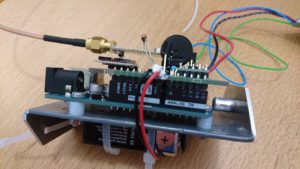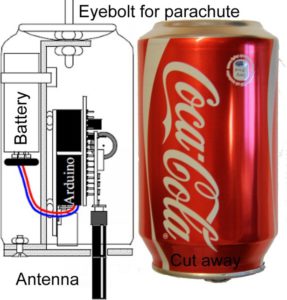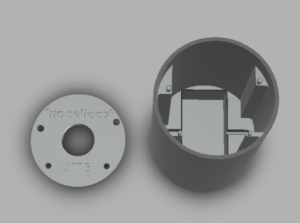Introduction
Before launching the CanSat the electronics and battery in the CanSat must be mounted on a bracket or in other ways secured in the can to be able to handle the stress of a launch and separation from a rocket.
An example is illustrated in the figure to the right where the electronics is mounted on a robust bracket. The parachute must be connected to the bracket, not the can. The can is just a shield to protect the electronics against direct impact.
Another suggestion is a 3D-printed can, designed to keep the electronics and battery secure in place. Students at a Norwegian secondary school (Bodin VGS) designed a can for their cansat as the one on the figure to the left. If you want to design your own can, you may want to start with this design file. Here you can find more examples of 3D printed mechanical structures.

The whole concept of CanSat is that neither weight nor volume shall be bigger than a standard soda can. You can find the (preliminary) requirements here.
The antenna should be a wire antenna because of its flexibility so when the CanSat lands, the antenna won’t be damaged during impact.


